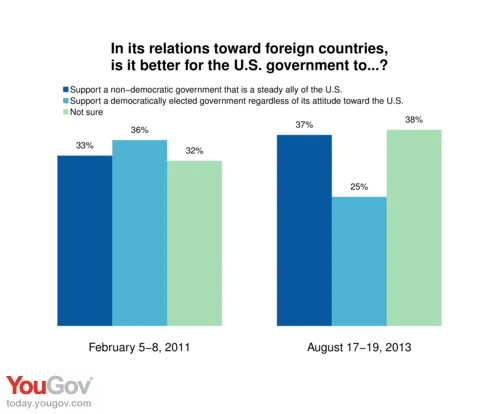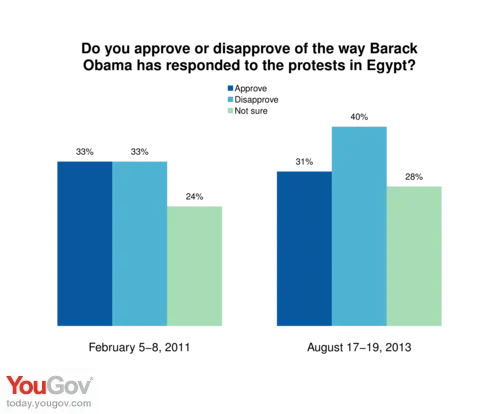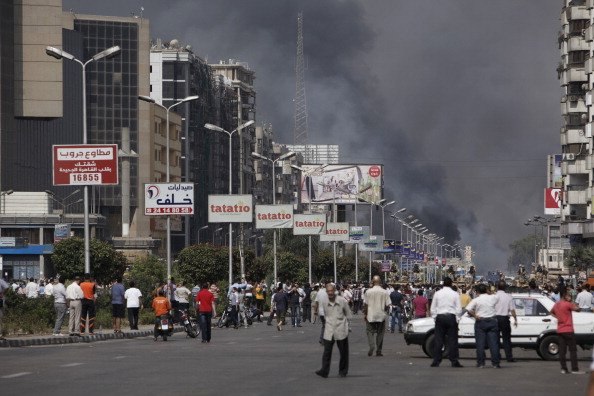(Week of August 19, 2013) Americans are certainly reevaluating U.S. relations with Egypt in the wake of the military ouster of President Mohammed Morsi and the government crackdown on protestors supporting his return. In the latest Economist/YouGov Poll, Americans are critical of President Obama’s handling of the situation and are worried that the violence in Egypt will spread to other countries in the Middle East.

During the Arab Spring two years ago, just after the ouster of long-time dictator Hosni Mubarak, Americans were more hopeful about the possibility of a stable democracy developing in Egypt. They were more hopeful about that possibility for Egypt than they were for some other countries in the region. Still, a quarter or more back then felt that Egypt would never become a stable democracy. Today, even more think that. 37% say Egypt will never be a stable democracy, up 11 points since March, 2011.

Just over four in ten Americans, including a majority of those under 30, are still hopeful of Egypt eventually becoming a stable democracy. However, older Americans are far more skeptical about Egypt's future.
The increased skepticism about a democratic Egypt has made the public a bit more willing to tolerate dictatorships, at least for now – and as long as they are friendly to the United States. By 37% to 25%, Americans say the country should support a non-democratic government that is a steady ally of the U.S. over a democratically-elected government, whatever its feeling about the U.S. During the Arab Spring, slightly more wanted the U.S. government to favor democratically-elected regimes.

Back in 2011, 58% believed that Egypt was an ally or was at least friendly to the United States. Just as they believed two years ago, many Americans are concerned that the United States has given too much support to Egypt. Then, 28% thought the United States had given Egypt too much support. Even more, 35%, say that now. Only 6% believe the United States should have given Egypt more support.
Given these concerns and the belief shared by many that the long-term outcome may not be a good one, there is criticism of the President’s handling of the situation. President Obama fares poorly when the public is asked how he has handled things. Two years ago, more approved than disapproved of the way President Obama had responded to the situation in Egypt, but that has since turned around. Now more disapprove than approve.

What may even be worse for the President is that many do not think he has any plan for handling the situation in Egypt. Just 12% say he has a clear plan for U.S. strategy there. Most think he does not. Even those who call themselves Democrats are not sure – more say he does not have a clear plan than think he does.

While Egypt is creating problems for the President, he does at least have one out: nearly half the public say he has little or no responsibility for what is going on in Egypt now. A quarter of Republicans, who usually are happy to criticize this President, agree that he has little blame. 14% of Americans (and 29% of Republicans), however, give President Obama most of the responsibility for the Egyptian crisis.
Images: Getty









